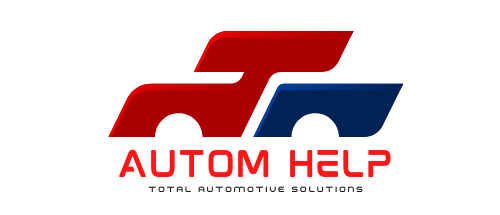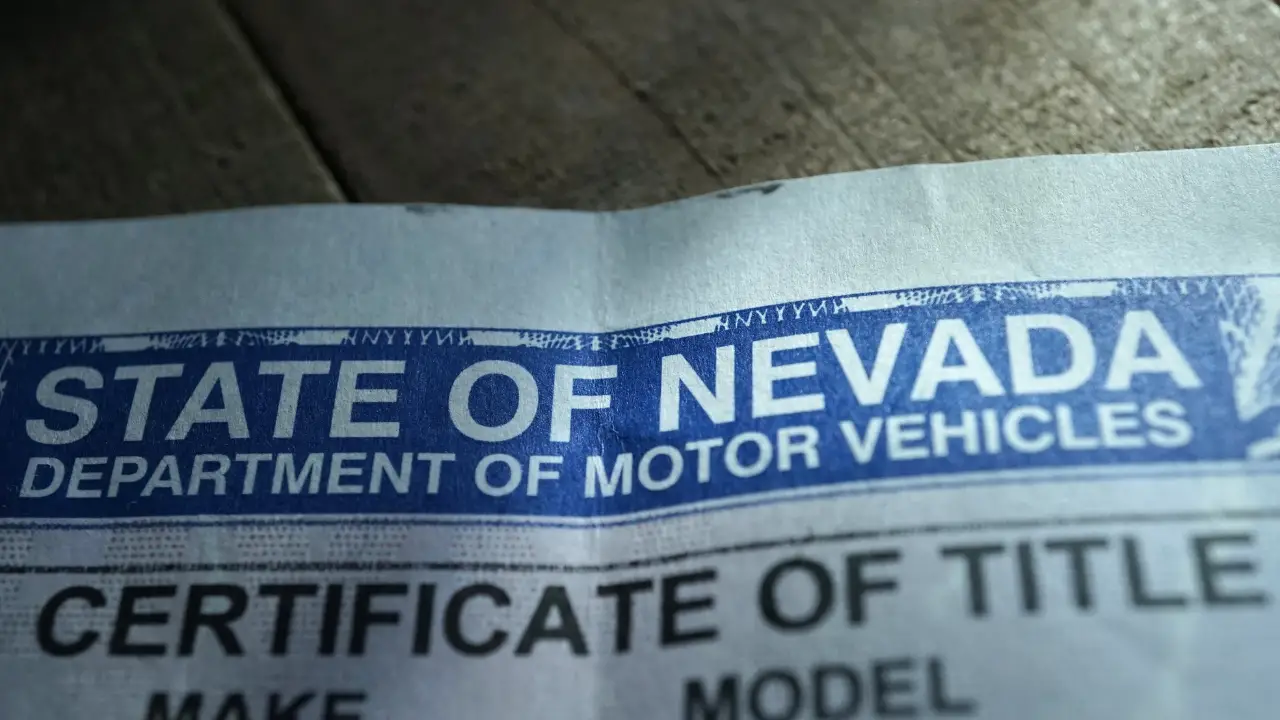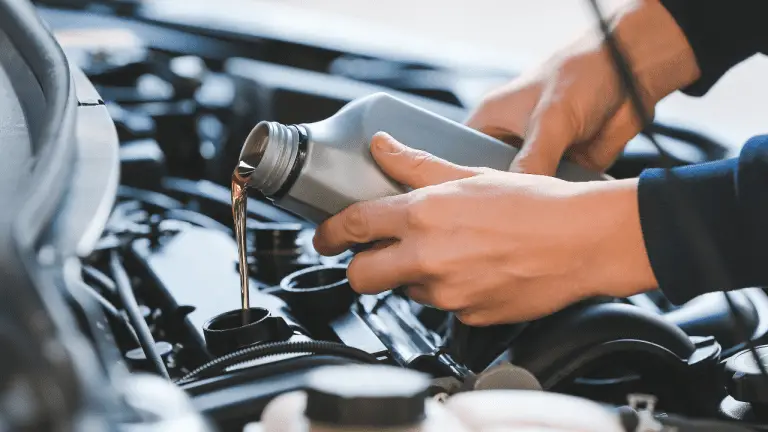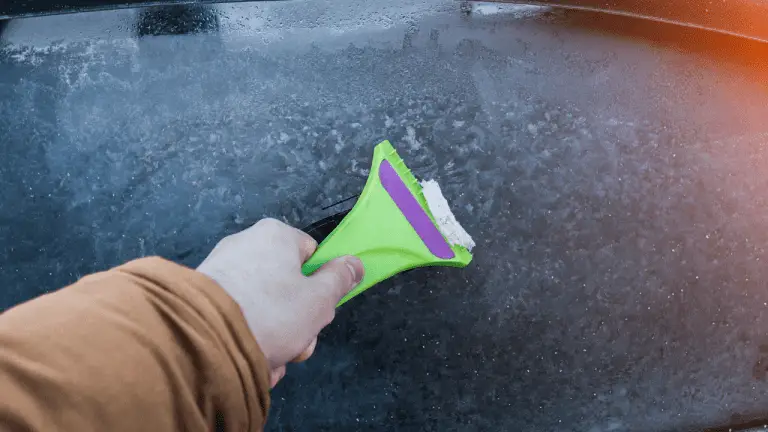What Does a Clean Title Mean on a Car? (Some Unknown Information)
A clean title on a car means that there are no outstanding loans or legal issues related to the vehicle. A clean title signifies that the car is owned outright by the seller and can be transferred to the buyer without any complications.
This is important because it ensures that the buyer will have full ownership and legal rights to the car. Additionally, a clean title also indicates that the vehicle has not been salvaged, stolen, or involved in any major accidents. It provides peace of mind to the buyer and allows for an easier and smoother transaction.
Understanding what a clean title means is crucial when buying or selling a car to avoid any potential problems in the future.
Understanding The Significance Of A Clean Title
Importance Of A Clean Title For Car Buyers
Purchasing a car is a significant investment, and it’s crucial to consider all aspects before making a decision. One crucial factor that often goes unnoticed is the title of the vehicle. A clean title holds immense importance for car buyers, and understanding its significance is essential.
Let’s dive deeper into why having a clean title is crucial when buying a car.
Key Points:
- Legal ownership assurance: A clean title signifies that the seller legally owns the vehicle and has the authority to sell it. This ensures that you won’t face any issues with ownership disputes in the future.
- Protection against fraud: A clean title ensures that the vehicle is not involved in any fraudulent activities, such as theft or undisclosed accidents. This provides peace of mind and protects you from becoming a victim of such scams.
- Ability to secure financing: Lenders often require a clean title to provide financing options for the purchase of a car. Without a clean title, obtaining a loan or lease agreement can be challenging or even impossible.
- Ease of ownership transfer: If you ever decide to sell or trade in your car in the future, having a clean title makes the process much smoother. It instills confidence in potential buyers, increasing the chances of a successful sale.
- Positive impact on insurance: Insurance companies prefer vehicles with clean titles as they are deemed more reliable and less risky. This can result in lower insurance premiums, saving you money in the long run.
How A Clean Title Impacts Car Value
A clean title not only holds importance for buyers but also significantly impacts the value of a car. Whether you plan to sell your vehicle or not, understanding the impact of a clean title on its value is essential.
Key Points:
- Higher resale value: Cars with clean titles usually have higher resale values compared to those with salvage or rebuilt titles. This is because buyers are willing to pay more for a vehicle with a clean history and fewer potential issues.
- Increased marketability: When you decide to sell your car in the future, having a clean title enhances its marketability. It attracts more potential buyers, increasing the chances of a faster and more profitable sale.
- Reduced depreciation: Vehicles with clean titles tend to depreciate at a slower pace compared to those with dubious histories. This means that your car’s value will hold better over time, allowing for a better return on your initial investment.
By understanding the significance of a clean title, car buyers can make informed decisions and protect themselves from potential fraud or legal issues. Additionally, a clean title has a positive impact on the value and marketability of a car, which can be beneficial when it comes to future resale or trade-in.
Whether you are purchasing a vehicle or already own one, always prioritize a clean title to ensure a smoother and more favorable ownership experience.
Identifying A Clean Title
The Difference Between Clean Titles And Salvage Titles
When it comes to purchasing a used car, one of the most important things to consider is the title status. A clean title is what you want, as it signifies that the vehicle has not been in any major accidents or suffered significant damage.
On the other hand, a salvage title means that the car has been deemed a total loss by an insurance company due to severe damage. Understanding the difference between these two titles is crucial in making an informed decision before buying a car.
Key Indicators Of A Clean Title
Identifying a clean title involves looking for certain key indicators that indicate the vehicle’s title status. Here are some important things to consider when determining if a car has a clean title:
- Ownership documentation: A clean title should come with proper ownership documentation, including a clear chain of title transfers and no outstanding liens.
- Vehicle history report: Conducting a vehicle history report is an essential step in determining the title status. This report will provide information about any accidents, damages, or title issues associated with the car.
- Vehicle identification number (vin): Inspecting the vin is crucial as it allows you to verify the car’s history and check for any discrepancies. A vin can provide valuable information about the title status and whether the car has salvage or rebuilt title branding.
Title Branding Codes To Look Out For
Title branding codes indicate any previous issues that may have affected a car’s title status. These codes are typically found on the vehicle title or in a vehicle history report. Here are some common title branding codes and their meanings:
- Clean title: This indicates that the vehicle has no branding or title issues.
- Salvage title: A salvage title signifies that the car has been deemed a total loss due to severe damage, typically from an accident, flood, or theft.
- Rebuilt title: A rebuilt title is given to a car that was previously declared salvage but has been repaired and deemed roadworthy.
- Lemon title: A lemon title is assigned to a vehicle that has had recurring mechanical problems or defects, making it unreliable or unsafe.
How To Check A Car’S Title History
To ensure you are purchasing a car with a clean title, it is essential to check its title history. Here are the steps to follow when checking a car’s title history:
- Obtain the vehicle identification number (vin) from the seller.
- Use a reliable online service or visit the national motor vehicle title information system (nmvtis) website to run a title search using the vin.
- Review the title history report, looking for any indications of title branding or previous damage.
- Cross-reference the information in the report with the car’s physical condition and the seller’s claims.
- Consider getting a professional inspection to thoroughly assess the car’s condition and ensure there are no hidden issues.
By following these steps and conducting thorough research, you can confidently identify whether a car has a clean title or not.
Remember, a clean title is a vital aspect to consider when purchasing a used car, as it provides peace of mind and minimizes the risk of buying a vehicle with undisclosed issues. Taking the time to investigate a car’s title history can save you from potential headaches and financial burdens in the future.
So, be diligent, gather the necessary information, and ensure a clean title before making your next used car purchase.
Why A Clean Title Matters
When it comes to buying a car, one of the most important things to consider is the title. A clean title signifies that the vehicle has not been involved in any major accidents, has no outstanding liens, and is legally owned by the seller.
Understanding why a clean title matters can save you from potential issues and future expenses. We’ll explore the legal and financial protection it provides, how it helps you avoid hidden damages and repairs, and why it is crucial for maintaining warranties.
Legal And Financial Protection For Car Buyers
A clean title offers both legal and financial protection for car buyers. Here’s why:
- Proof of ownership: A clean title ensures that the seller legally owns the vehicle and has the right to sell it to you. This protects you from falling victim to potential scams or fraudulent deals.
- Clear history: A clean title means that the car has not been reported as stolen or involved in any major accidents. This helps you avoid legal complications and potential financial losses associated with purchasing a stolen or salvaged vehicle.
- Easy registration and transfer: With a clean title, you can easily register the vehicle in your name and transfer the ownership without any hassle. This saves you time and helps avoid unnecessary paperwork or delays.
Avoiding Potential Issues And Future Expenses
Having a clean title can help you avoid a range of potential issues and future expenses related to the car’s history. Here’s how:
- Hidden mechanical problems: A clean title suggests that the car has undergone regular maintenance and inspections, minimizing the chances of hidden mechanical issues. This means you are less likely to face unexpected repair costs shortly after the purchase.
- Outstanding liens and debts: A clean title ensures that there are no outstanding debts or liens registered against the vehicle. Buying a car with a clean title protects you from being held responsible for the previous owner’s unpaid debts, which could otherwise lead to potential financial burdens.
- Resale value: A clean title enhances the resale value of the vehicle. When you decide to sell the car in the future, having a clean title makes it easier to find buyers and negotiate a better price. This ensures that you get a good return on your investment.
Hidden Damages And Repairs
A clean title can safeguard you from hidden damages and the need for costly repairs. Here’s why it matters:
- Accurate vehicle history: A clean title indicates that the car has not experienced significant damage that would affect its structural integrity. This reduces the risk of driving a vehicle that has hidden damages or has been repaired poorly, potentially compromising your safety.
- Comprehensive inspection: A clean title often implies that the vehicle has undergone thorough inspections, including checks for flood damage, frame damage, and other structural issues. This ensures that you are getting a reliable vehicle that is free from any hidden damages.
- Peace of mind: By purchasing a car with a clean title, you can have peace of mind knowing that you are driving a reliable vehicle without any undisclosed issues or repairs. This allows you to enjoy your new car without constant worry about potential problems down the road.
Voided Warranties
Purchasing a car with a clean title is vital for maintaining warranties and safeguarding your investment. Here’s why it is crucial:
- Manufacturer warranties: A clean title ensures that you are eligible for any existing manufacturer warranties. This means that you can benefit from repairs, parts replacements, or even extended warranties, providing you with added protection and potential savings on maintenance costs.
- Extended warranties: If you choose to purchase an extended warranty for your vehicle, a clean title is often a requirement. By having a clean title, you fulfill the necessary criteria for extended warranties, giving you the option to further protect your investment.
- Peace of mind: Knowing that your vehicle’s warranties are intact allows you to drive with peace of mind. Having the assurance that you are covered in case of unexpected issues can save you from significant financial burdens in the future.
A clean title holds great importance when buying a car. It not only provides legal and financial protection for car buyers but also helps avoid potential issues, hidden damages, and future expenses. Moreover, having a clean title ensures that warranties remain valid, giving you peace of mind and protecting your investment.
By prioritizing a clean title, you can make a well-informed decision and enjoy a smoother ownership experience with your new vehicle.
The Process Of Obtaining A Clean Title
A clean title is an important aspect when purchasing a car. It ensures that the vehicle is free from any major issues such as outstanding liens or loans, and that it has passed the necessary inspections and verifications. If you’re wondering how to obtain a clean title for a car, here are the steps involved in the process:
Vehicle Inspection And Verification
Before a clean title can be issued for a car, it must first go through a thorough inspection and verification process. This typically involves checking the vehicle for any signs of damage, ensuring that it has not been involved in any accidents, and verifying the accuracy of its vehicle identification number (vin).
Here are the key points to understand:
- The car is thoroughly inspected to identify any major damages or issues.
- The vin is verified to ensure its accuracy and legitimacy.
- Accident history is checked to determine if the car has been involved in any significant accidents.
- The vehicle’s condition is assessed to ensure it meets the necessary standards for obtaining a clean title.
Resolving Any Outstanding Liens Or Loans
In order to obtain a clean title, it is crucial to resolve any outstanding liens or loans that may be attached to the vehicle. This is important to ensure that there are no financial obligations or legal claims against the car.
Here are the key points to consider:
- Any outstanding loans or liens must be paid off or resolved before a clean title can be issued.
- The necessary paperwork and documentation need to be provided to prove that the financial obligations have been cleared.
- It may be necessary to work with the lienholder or the financial institution to obtain the necessary release documents.
- A lien release letter or a lien satisfaction document may be required as proof of resolution.
Completing Necessary Paperwork And Fees
Once the vehicle has passed the inspection, verification, and lien resolution processes, the next step is to complete the necessary paperwork and pay the required fees to obtain a clean title. Here are the key points to keep in mind:
- The proper paperwork must be completed, including applications for title transfer and registration.
- The necessary identification documents, such as a driver’s license, may be required to complete the paperwork.
- Depending on the state or jurisdiction, various fees may need to be paid, including title transfer fees and taxes.
- It is important to ensure that all the paperwork is accurately completed and signed before submitting it for processing.
These are the essential steps involved in obtaining a clean title for a car. It is important to carefully follow the necessary procedures and ensure that all requirements are met to obtain a clean title, which guarantees the legal ownership and authenticity of the vehicle.
Tips For Maintaining A Clean Title
One of the most important aspects of owning a car is ensuring that it has a clean title. A clean title means that the vehicle’s ownership record is clear, without any liens, salvage history, or other issues that could affect its value or legal status.
Maintaining a clean title not only gives you peace of mind, but it also helps protect your investment in the long run. Here are some essential tips to help you maintain a clean title for your car:
Regular Maintenance And Care For A Car’S Condition
- Keep up with regular maintenance: Regularly servicing your car not only keeps it running smoothly but also helps maintain its value. Make sure to adhere to the manufacturer’s recommended maintenance schedule, such as oil changes, tire rotations, and brake inspections.
- Address repairs promptly: If your car requires any repairs or replacements, it is crucial to address them promptly. Neglecting even minor issues can lead to more significant problems down the line, potentially impacting the value and title of your vehicle.
- Keep your car clean and well-maintained: Regularly washing and waxing your car helps prevent rust and damage to the exterior. Additionally, maintaining a clean and organized interior can prevent issues such as mold or unpleasant odors from arising.
Timely Payments And Loan Management
- Make timely loan payments: If your car is financed, it is essential to make your monthly payments on time. Late or missed payments can result in default, which may lead to the lender repossessing your vehicle and affecting the title.
- Stay informed about your loan status: Regularly check your loan statements to ensure accuracy and stay updated on the loan balance and payment schedule. Being aware of your loan status helps you avoid any potential misunderstandings or issues with the lender that could impact your car’s title.
Avoiding Potential Title Issues Through Cautious Buying
- Research the vehicle’s history: Before purchasing a car, it is crucial to research its history to ensure there are no red flags. Obtain a vehicle history report that provides information about previous accidents, mileage discrepancies, or potential title problems.
- Verify the seller’s credibility: When buying a car, choose reputable sellers such as authorized dealerships or individuals with a proven track record. Be cautious of private sellers who may attempt to sell a vehicle with a hidden title issue.
- Conduct a thorough inspection: Inspect the car thoroughly both visually and mechanically. Look for any signs of previous accidents, flood damage, or other issues that may affect the title or overall condition of the vehicle.
By following these tips, you can maintain a clean title for your car and ensure its long-term value and legal status. Regular maintenance and care, timely loan management, and cautious buying are essential steps in protecting your investment and enjoying a trouble-free ownership experience.
Potential Pitfalls To Watch Out For
When it comes to purchasing a car, one of the most crucial aspects to consider is the title. A clean title ensures that you are the rightful owner of the vehicle and protects you from potential scams and frauds that can arise.
In this section, we will explore the common pitfalls to watch out for when it comes to car titles, including scams, flood-damaged or stolen vehicles, title washing, and vin cloning.
Common Scams And Frauds Related To Car Titles
Being aware of common scams and frauds related to car titles can save you from falling victim to unscrupulous sellers. Here are some key points to keep in mind:
- Title skipping: This scam occurs when the seller avoids registering the vehicle in their name, resulting in a missing link in the ownership history. It is important to verify the complete chain of ownership before making a purchase.
- Salvage title fraud: Some sellers may attempt to conceal the fact that a car has a salvage title, which indicates that it has been in a significant accident or suffered major damage. Conduct thorough research and request a vehicle history report to uncover any salvage title issues.
- Odometer rollback: Dishonest sellers may tamper with the mileage on a car to make it appear less used, thus increasing its value. Look for signs of excessive wear and tear that do not align with the indicated mileage, and always verify the odometer readings.
Recognizing Red Flags And Ensuring A Clean Title
To ensure a clean title, it is essential to stay vigilant and recognize potential red flags during the car buying process. Consider the following points:
- Incomplete or altered documents: Check all the documents thoroughly for any missing information or alterations. Pay close attention to the vehicle identification number (vin) to ensure consistency across all documents.
- Unusual test drives or meeting locations: Be cautious if a seller insists on meeting in unconventional locations or refuses a test drive. This could indicate that they are trying to hide something about the vehicle.
- Lack of vehicle history: Request a vehicle history report to obtain detailed information about the vehicle’s past, including accidents, damage, and ownership history. This report can reveal any hidden problems associated with the car’s title.
Flood-Damaged Or Stolen Vehicles
One of the most significant risks when buying a used car is unknowingly purchasing a vehicle that has been damaged in a flood or stolen. Here’s what you need to know:
- Flood-damaged vehicles: Flood-damaged cars can be restored and sold without proper disclosure. Look for signs such as musty odors, inconsistent carpeting or upholstery, and water lines in the engine bay. Conduct a thorough inspection and consider getting a professional inspection if necessary.
- Stolen vehicles: Purchasing a stolen vehicle not only puts you at risk legally, but it may also result in losing the car altogether. Check the vin against databases like the national insurance crime bureau’s (nicb) vincheck to ensure the vehicle is not reported as stolen.
Title Washing And Vin Cloning
Title washing and vin cloning are deceptive practices used to hide a car’s true history and provide false documentation. Familiarize yourself with these points to avoid being a victim:
- Title washing: Title washing involves transferring a vehicle through multiple states to eliminate any branding associated with its title history. As a result, a car with a problematic history may appear clean. Always verify the vehicle history by obtaining a thorough report.
- Vin cloning: Vin cloning occurs when a stolen vehicle’s identification number (vin) is replaced with a legitimate vin from a similar make and model. This illegal practice can deceive potential buyers and law enforcement. Cross-reference the vin on the car with the vin listed on the vehicle’s documentation to ensure they match.
By being aware of these potential pitfalls and knowing how to identify red flags, you can safeguard yourself from scams, frauds, and other issues related to car titles. Remember to conduct thorough research, request vehicle history reports, and seek professional inspections when necessary to ensure you are buying a car with a clean and legitimate title.
Conclusion
To sum it up, a clean title on a car holds significant value and offers numerous benefits to both buyers and sellers. It serves as a legal document that proves ownership and protects against potential fraud or scams. A clean title also indicates that the car has not been severely damaged or declared a total loss by an insurance company.
This provides peace of mind to potential buyers and enhances the resale value of the vehicle. Additionally, a clean title simplifies the process of transferring ownership and obtaining car insurance. It is crucial to thoroughly inspect the title before purchasing a car to avoid any unexpected issues in the future.
By understanding what a clean title means and the advantages it brings, car buyers can make informed decisions and ensure a smooth and hassle-free experience. So, whether you’re buying or selling a car, always prioritize a clean title for a stress-free transaction.
- Why Are My Car Headlights Not Bright Enough? - May 9, 2024
- How Long Can You Drive With An EVAP Leak? - May 9, 2024
- What Does B Stand for in a Car? [Full Guide] - May 9, 2024





